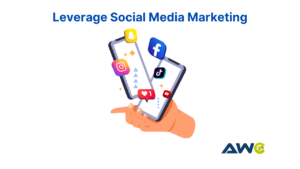Introduction:
In the fast-paced digital landscape, direct-to-consumer (D2C) brands are increasingly leveraging the power of digital marketing to connect with their target audience, drive brand awareness, and boost sales. With the right strategies in place, D2C brands can effectively engage their customers, create brand loyalty, and achieve significant business growth. In this blog, we will explore effective digital marketing strategies that can help D2C brands thrive in the online marketplace.
1. Develop a Comprehensive Content Marketing Strategy:
Content marketing plays a pivotal role in D2C brand success. Create high-quality, informative, and engaging content that resonates with your target audience. Focus on addressing their pain points, providing valuable insights, and showcasing the unique value proposition of your brand. Leverage different content formats, such as blog articles, videos, infographics, and social media posts, to diversify your content and reach a wider audience.
2. Leverage Social Media Marketing:

Social media platforms are essential for D2C brands to connect with their target audience and build brand awareness. Identify the platforms where your audience spends the most time and develop a strong presence there. Create engaging and shareable content, run targeted ad campaigns, collaborate with influencers, and actively engage with your followers. Utilize social listening tools to understand customer sentiments, address queries, and leverage user-generated content.
3. Implement Search Engine Optimization (SEO) Strategies:
Optimizing your website and content for search engines is critical for driving organic traffic and visibility. Conduct keyword research to identify relevant search terms and integrate them naturally into your website content, meta tags, headings, and URLs. Focus on creating high-quality, user-friendly webpages that load quickly and provide a seamless browsing experience across devices. Invest in link-building strategies to enhance your website’s authority and credibility.
4. Embrace Influencer Marketing:
Influencer marketing has gained significant traction in recent years. Collaborating with influencers who align with your brand values and target audience can amplify your reach and drive conversions. Research and identify influencers who have a genuine connection with their followers and can authentically promote your products or services. Whether it’s through sponsored content, product reviews, or ambassadorships, influencer marketing can help build trust and credibility for your D2C brand.
5. Personalize and Automate Email Marketing:
Email marketing remains a powerful tool for D2C brands to nurture customer relationships and drive sales. Segment your email lists based on customer preferences, purchase history, and behavior to deliver personalized and targeted messages. Automate email workflows, such as welcome emails, abandoned cart reminders, and post-purchase follow-ups, to streamline your communication and enhance the customer experience. Test different email formats, subject lines, and CTAs to optimize your campaigns.
6. Harness the Power of User-Generated Content (UGC):
User-generated content is a valuable asset for D2C brands. Encourage customers to share their experiences, reviews, and photos with your products or services. Showcase UGC on your website, social media channels, and marketing campaigns to build trust and authenticity. Run contests, giveaways, or loyalty programs to incentivize customers to create and share content. UGC not only promotes your brand but also fosters a sense of community among your customers.
Conclusion:
Implementing effective digital marketing strategies is crucial for D2C brands looking to thrive in the competitive online landscape. By developing a comprehensive content marketing strategy, leveraging social media, implementing SEO techniques, embracing influencer marketing, personalizing email campaigns, and harnessing user-generated content, D2C brands can enhance their brand visibility, engage their target audience, and drive meaningful business growth. Remember to monitor and analyze your digital marketing efforts regularly, adapt to changingtrends, and optimize your strategies to stay ahead of the competition in the dynamic digital space.
